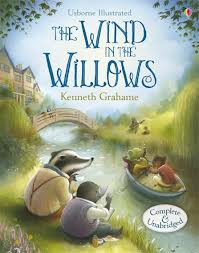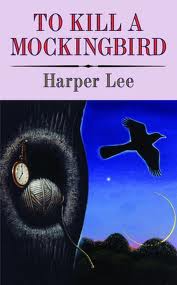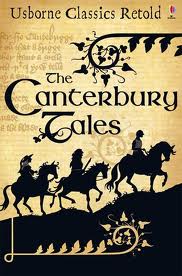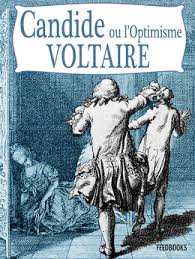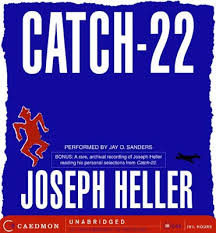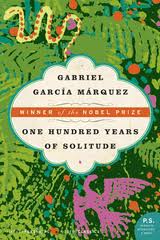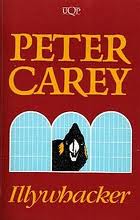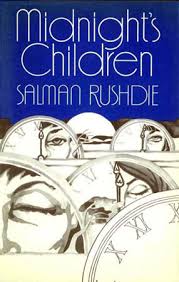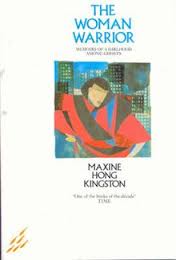Some years ago E.D Hirsch made his recommendations about what US kiddies should know and we all know Gove is following a similar route with his new curriculums, prescribing what students must know by certain ages. Let me be less prescriptive and suggest a reading list – by no means exhaustive – of the novels and stories children should read on their way through school. And you should catch up on as well!
A good starting point for reading what is considered good quality are the short lists for the various literary prizes, eg The Booker, Miles Franklin, Pulitzer and YA prizes. Go to past years and see what’s there. The internet proliferates with lists of 50 best of… so check them out too.
Let’s remember why reading is important
1.Reading teaches us about language, about syntax, vocabulary, sentence structures and text cohesion – it is invaluable in learning how to write effectively. A good reader becomes a good writer. When language (or grammar) skills are taught explicitly the child already has something to hook the new learning into, something to contextualise the knowledge so it makes sense and is ‘absorbed’ into the growing skill base.
2.Reading teaches us about the world – we learn facts, we learn about places and events, we learn about who we are and how we operate in the world. This is as true of fiction as it is of non-fiction, of factual texts.
3.Reading teaches us about how to be human. There is a lovely body of evidence that shows that the fiction readers amongst us are more in tune with others, more empathetic and able to understand other people, their emotions and motivations.
4.Reading also helps develop concentration, the ability to focus on one task for an extended time, which we all need to do, especially students in school and given the alarmingly range of short snappy distractions in this modern world we need a way to develop concentration skills. Twenty-thirty minutes a day is not a lot of time but it may be the best use of half an hour there is!!
5.Reading is also an immensely pleasurable task – personal, private, portable, cheap. A life without reading really is an impoverished life, regardless of all the above reasons.
A beginning non-comprehensive reading list:
Early Years – Pre-school & Primary
The caveat being that you MUST read to your child every day. And then you MUST listen to them when they begin to read. Reading together is the act that shows both love and the importance of reading to you both. I would suggest that you buy books as presents – always one for birthdays and Christmas. This simple act builds reading and books into young people’s lives as a natural and normal thing.
Myths and Legends from across the world – Greek and Roman, Arthurian, Aboriginal, Chinese, etc. There are a range of versions from picture books through to the originals – begin gently
Bible stories – again children’s versions, Moses, The Ark, Exodus, Jesus and his miracles, etc
Spot books – a family favourite
Picture books – many coming out all the time – look for areas of interest and presentation of content and illustrations
Enid Blyton – The Far Away Tree is still lovely
Winnie the Pooh
Paddington Bear
The Wind in the Willows
Peter Pan
Alice in Wonderland & other Lewis Carroll works, do not forget Jabberwocky
Ogden Nash poetry
Snugglepot and Cuddle Pie, The Magic Pudding (Australia)
Goosebumps series – wonderful for learning how to read independently
A Wizard of Earthsea
Chronicles of Narnia
The Hobbit
The Jungle Book
Treasure Island – Robert Louis Stephenson
Middle Years – 12-15
Some of this list will be taught in school as part of the English curriculum. This list and the one for 16+ will be wholly dependent on your child and their ability and interest. But what I am stressing here is more of the classics than much modern stuff – which isn’t to say that The Hunger Games and Alex Rider books aren’t worth reading, just that you need to keep an eye out for quality, so your child has a rich reading experience.
One Dickens – Oliver or Great Expectations
Harry Potter, much as I hate to admit it – they are now loaded with cultural and social references – but go to The Lord of the Rings for the original references!
Shakespeare – poetry, Macbeth and Romeo and Juliet
Lord of the Flies – a bit dated now but worth a read
To Kill a Mockingbird
Animal Farm and 1984 – you cannot escape Orwell and these are essential to understanding our modern world and how we fit in it
Brave New World – worth a look
Some Agatha Christie – the original queen of crime – Murder in Mesopotamia
Some Hemingway
Steinbeck – Of Mice and Men, The Grapes of Wrath
Later Years – 16+
This really is classics land and only a sample of what is possible – many writers have a range of texts to choose from. But these texts – novels, short stories and poems will inform the rest of your reading and connect you to a range of experiences, times, cultures and societies and that’s what reading is meant to do!
Frankenstein
Dracula
Robinson Crusoe
Tess of the D’Urbervilles
Pride and Prejudice
A Clockwork Orange
The Romantic Poets – Keats, Byron, Shelley
Hamlet, King Lear, Julius Cesar
Classic Poetry
L’Morte D’Arthur
The Canterbury Tales
The Rime of the Ancient Mariner
Under Milk Wood
The Lovesong of J Alfred Prufrock
Classic European Novels
Candide
All Quiet on the Western Front – if you are going to read a war novel then this is it – or see below – Catch 22??
One Day in the Life of Ivan Denisovick
Anna Karenina or War and Peace
The Brothers Karimazov
The Hunchback of Notre Dame
Les Miserables
Madame Bovary
Don Quixote
Classic American Novels
Catch 22 – perhaps the best anti-war novel ever written
Catcher in the Rye
One Flew Over the Cuckoo’s Nest
On the Road
Moby Dick
The Last of the Mohicans
The Sound and the Fury
The Adventures of Tom Sawyer & Huck Finn – there must be some Mark Twain!
The Great Gatsby
Maus, Night – Eli Weisel
+ Edgar Allan Poe short stories
+ Margaret Atwood, who is Canadian, lest we forget that country!
African Literature*
Things Fall Apart
Doris Lessing – novels and stories, especially Through the Tunnel
South American Literature*
100 Hundred Years of Solitude
Like Water for Chocolate
House of the Spirits
*I know I have just ignored the countries for the sake of the continents but please forgive and/or add more books!
Classic Australian Novels
Schindler’s List, Thomas Kenneally
Bliss and Illywhacker, Peter Carey
Cloudstreet, Tim Winton
Capricornia, Xavier Herbert
My Brilliant Career, Miles Franklin
For the Term of His Natural Life, Marcus Clarke
The Well, Elizabeth Jolley
Lillian’s Story, Kate Grenville
For Love Alone, Christina Stead
Maestro, Peter Goldsworthy
Gould’s Book of Fish, Richard Flanagan
The Eye of the Storm, Patrick White
See also: http://blog.booktopia.com.au/2011/01/11/50-must-read-australian-novels-as-voted-by-you-in-2010/
Classic Indian Novels
A Suitable Boy – Vikram Seth
The God of Small Things – Arundhati Roy
Midnight’s Children and any other Salman Rushdie
+ VS Naipaul
Chinese Literature
The Woman Warrior – Maxine Hong Kingston
Wild Swans
1000 Paper Cranes
There is so much more than this – it is just a start. Yes, I have read most of these and the ones I haven’t read are on my bookshelf and my to read list. There are many wonderful modern novels and stories out there too, don’t ignore them. Remember this is a list to enable you to better enjoy and understand what you do read. Popular culture is full of references to stories and people from literature. Where would we be without George Orwell and Big Brother???
What would you add? (Book cover images courtesy Google Images)
